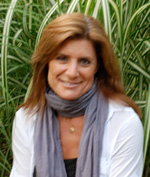In a packed West Loop auditorium earlier this week at the Illinois Institute of Technology’s Chicago-Kent College of Law, five Chicago mayoral candidates presented their environmental platforms to a gathering of more than 200 eco-minded Chicagoans. With one notable exception, supporting green business activity didn’t figure high on the candidates’ list of priorities. But some offered thoughtful ideas when pressed about how they anticipate stimulating the local green economy.
Some of the candidates — Chicago City Clerk Miguel del Valle, former U.S. Sen. Carol Moseley Braun and U.S. Rep. Danny Davis — showed up with a prepared agenda of environmental priorities they’d pursue if elected mayor. The most popular programs heard repeatedly that evening included energy efficiency retrofits for residential and commercial buildings, improving public transportation and revving up Mayor Richard M. Daley’s fledgling recycling program.
Two other candidates, John Hu and Patricia Van Pelt-Watkins, discussed their broader views of sustainability and environmental concerns for the city. However, they frankly admitted they hadn’t yet crafted an environmental wish list for addressing the city’s needs, even though they considered it important.
Mr. Davis launched his remarks with a call for advancing green technology in Chicago.
“I will push for green technology and for the city to become a hub of innovation and manufacturing of green technology, from wind turbines to solar panels,” he said. Mr. Davis noted that people want to build solar panel manufacturing plants in Chicago and he would identify or create tax incentives and tap zoning regulations in the city to help those companies get established in the city.
He placed a high priority on retrofitting city-owned office buildings and encouraging others to retrofit privately owned commercial and residential structures. “That would create jobs, but it will also create efficiencies through new technologies and create environmentally friendly environments,” he said.
In comments after the forum ended, Ms. Braun emphasized the need for advancing economic development in Chicago by encouraging public and private investment in the local green economy.
“Clean technology holds great promise, but right now there’s no access to venture capital to make it happen,” she told me. “The city can use its influence to make venture capital more readily available. Right now 40% of our pension fund investments go to venture capital funds and they’re only putting 10% of that money back here in Chicago. We can make clean tech and other green business a criteria for investment.”
In addition, Ms. Braun said she would work on making city regulations less onerous and encouraging local banks to offer financing for entrepreneurs and small businesses keen on getting involved in green-related ventures.
Ms. Braun has some insight to the challenges of starting a green business. Since leaving public office, which included a stint as U.S. ambassador to New Zealand, she launched a Chicago-based organic tea, coffee and spice company called Ambassador Organics.
“I also want to support technology transfer from our huge research and technology assets in this region,” she added. “The more we can tap into that for universities to partner with new or small businesses, the better we’ll be at building a new green economy.”
If elected mayor, Mr. del Valle said he’d focus on promoting energy efficiency retrofits on a massive scale for commercial buildings as a potential driver to boost green economic development. “These retrofits will serve as a major job creator if we go the scale recommended in the Chicago Climate Action Plan,” he said. “Energy efficiency retrofits create an estimated 10 jobs for $1 million invested.”
He added: “As mayor, I’ll be proactive about finding and creating new financing mechanisms for green initiatives. Chicago has become a hub for entrepreneurs working to create new green businesses and green jobs. But in many cases they’ve been hindered by our antiquated zoning and licensing requirements. As mayor, I’ll bring businesses and community groups together with city departments to conduct a comprehensive review of Chicago’s zoning restrictions and licensing requirements.”
John Hu, a Republican candidate, said he didn’t know much about environmental issues and pointed to members of the audience who are active players in various environmental organizations and said he’d probably seek them out for advice on how to proceed if he gets elected.
Ms. Van Pelt-Watkins, a longtime community organizer and activist, emphasized a big-picture interpretation of sustainability in her prepared remarks. She said it’s impossible to talk about sustainability for Chicago without first addressing the underlying problems of violence in many neighborhoods. Residents need to feel safe before they’re willing to come out and help make their neighborhoods more sustainable through the purchase of goods from local merchants and gathering in commercial areas, she asserted. After listening to other candidates who spoke before her, Ms. Van Pelt-Watkins confessed she didn’t realize the audience was probably more interested in the granular details of how the next mayor would address some of the city’s ongoing environmental problems.
The event was organized by Foresight Design Initiative, which sponsors monthly Green Drinks networking and meeting events, as well as other substantive programs for Chicago professionals engaged in the sustainable business community.
Rahm Emanuel didn’t make it to the candidates’ forum but coincidentally released an energy-efficiency agenda on the same day, offering his plan for boosting building retrofits in the city if he’s elected mayor.
In that plan, he promises to triple the number of local building retrofits among homeowners and businesses in Chicago from 7,000 in 2009. Mr. Emanuel estimates his plan would create more than 400 jobs, and he outlined an implementation strategy that includes establishing an investment fund to help finance the projects and identifying partner organizations in neighborhoods to carry out the details.

